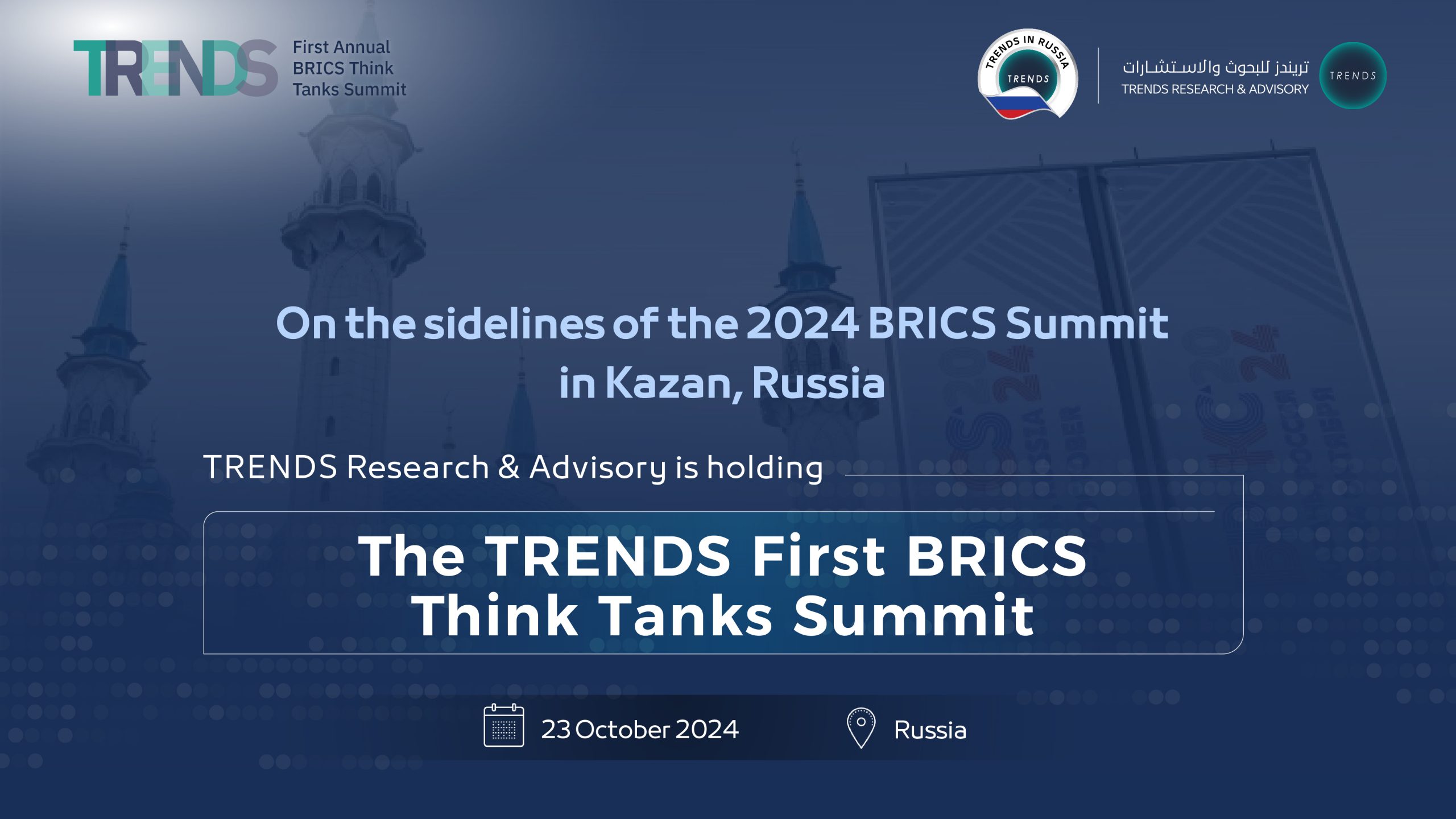-Dr. Mohammed Al-Ali: The summit aims to strengthen the role of research centers in developing sustainable strategies that support the goals of the BRICS alliance
–TRENDS will inaugurate a physical office in Russia and sign two academic and research cooperation agreements
On the sidelines of the 2024 BRICS Summit, to be held in Kazan, Russia, TRENDS Research and Advisory is set to hold its first BRICS Think Tanks Summit on Wednesday, October 23, 2024, in Russia, with the participation of over 13 academic institutions and research centers from BRICS countries.
The summit aims to highlight the importance of collaboration between research institutions in BRICS countries in foreseeing the future and shaping economic and social policies, while working to build sustainable bridges of partnership and cooperation among those countries. It also seeks to enhance their role in the multipolar international system.
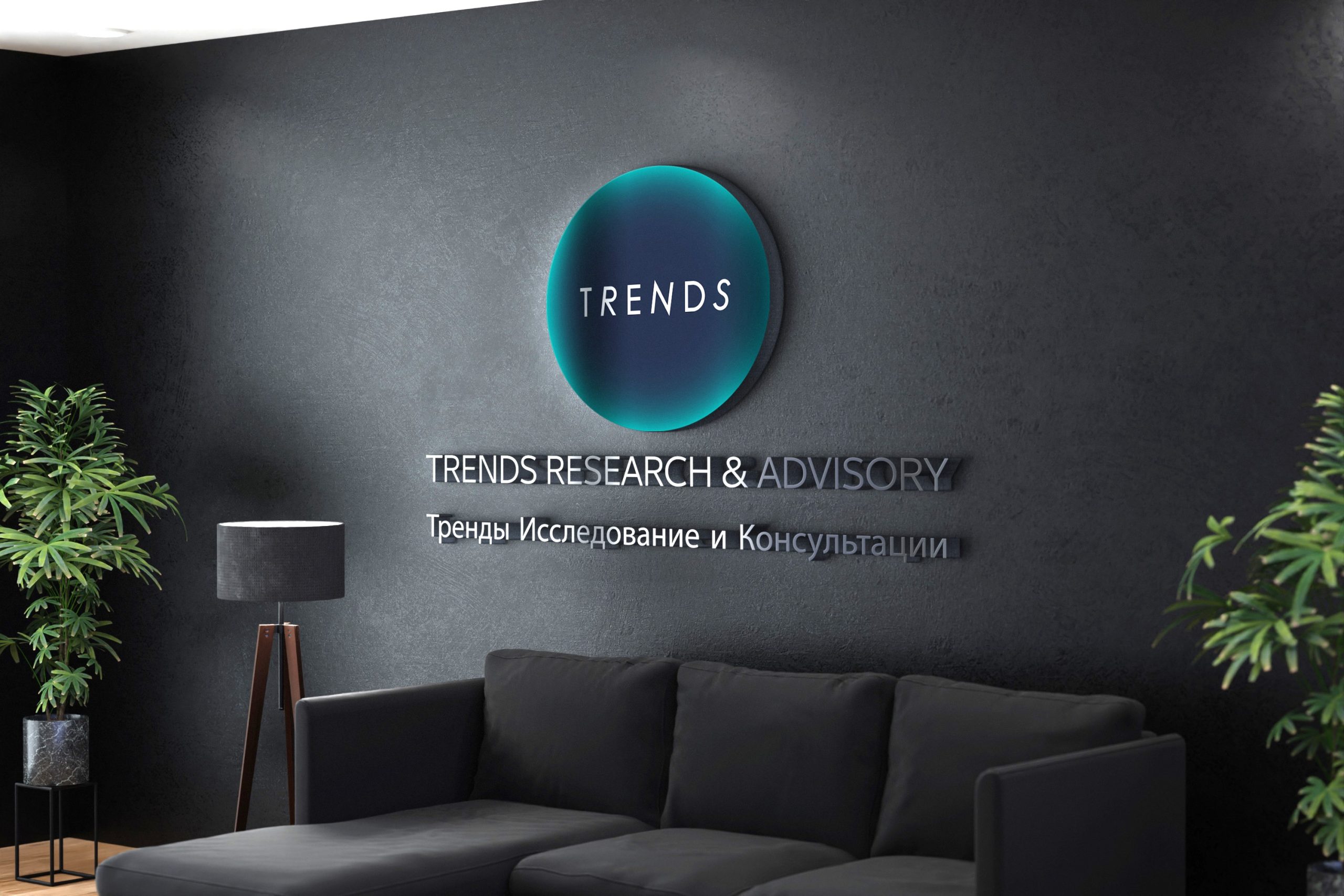
New Office and Partnerships
As part of its research tour in Russia and in line with TRENDS’ global vision and expansion plan, the Center will inaugurate a physical office in Moscow to serve as a bridge between researchers and experts from the Middle East and Russia. The office will focus on producing research and studies on geopolitical and economic ties between Russia, Eurasia, and the Middle East.
TRENDS will also sign an academic and research cooperation agreement with Russia’s Lobachevsky University and another memorandum of cooperation with the Iranian Governance and Policy Think Tank (GPTT).
During its research tour in Russia, TRENDS will explore future cooperation with several research institutions, including the Russian Presidential Academy and Russia’s news agency TASS.
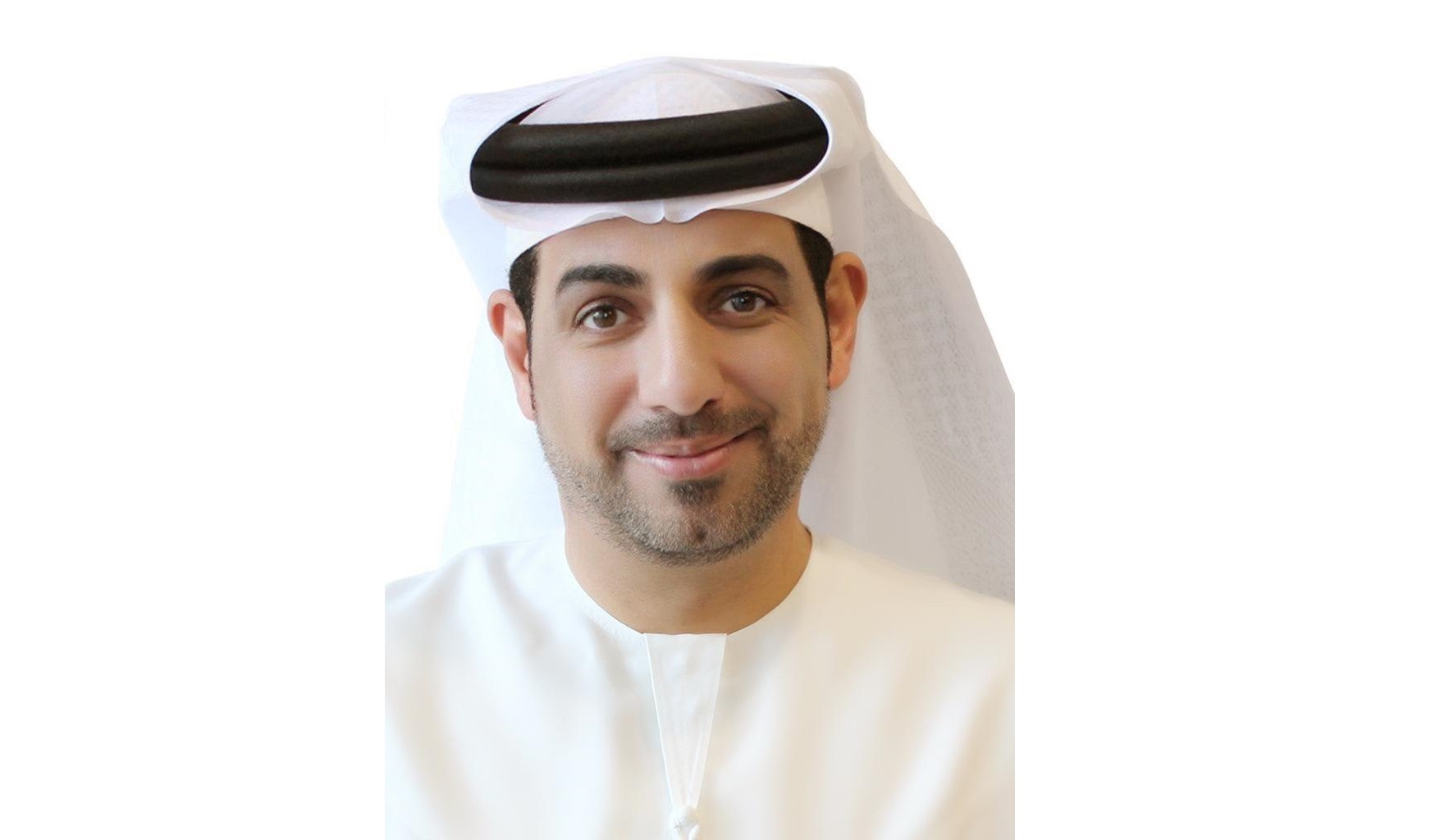
A Multipolar World
Dr. Mohammed Abdullah Al-Ali, CEO of TRENDS Research and Advisory, stated that the international system is moving towards a multipolar world. In this context, think tanks are becoming increasingly important as a key driver of intellectual development and policy-making. Research centers play a crucial role in providing original research and forward-looking insights that help chart a clear roadmap for addressing global challenges.
He added: “As BRICS emerges as a powerful economic and political force on the global stage, the TRENDS First BRICS Think Tanks Summit aims to reinforce the role of think tanks in BRICS countries in supporting public policies and developing innovative strategies to achieve sustainable development and strengthen international cooperation in line with the goals of the BRICS alliance”.
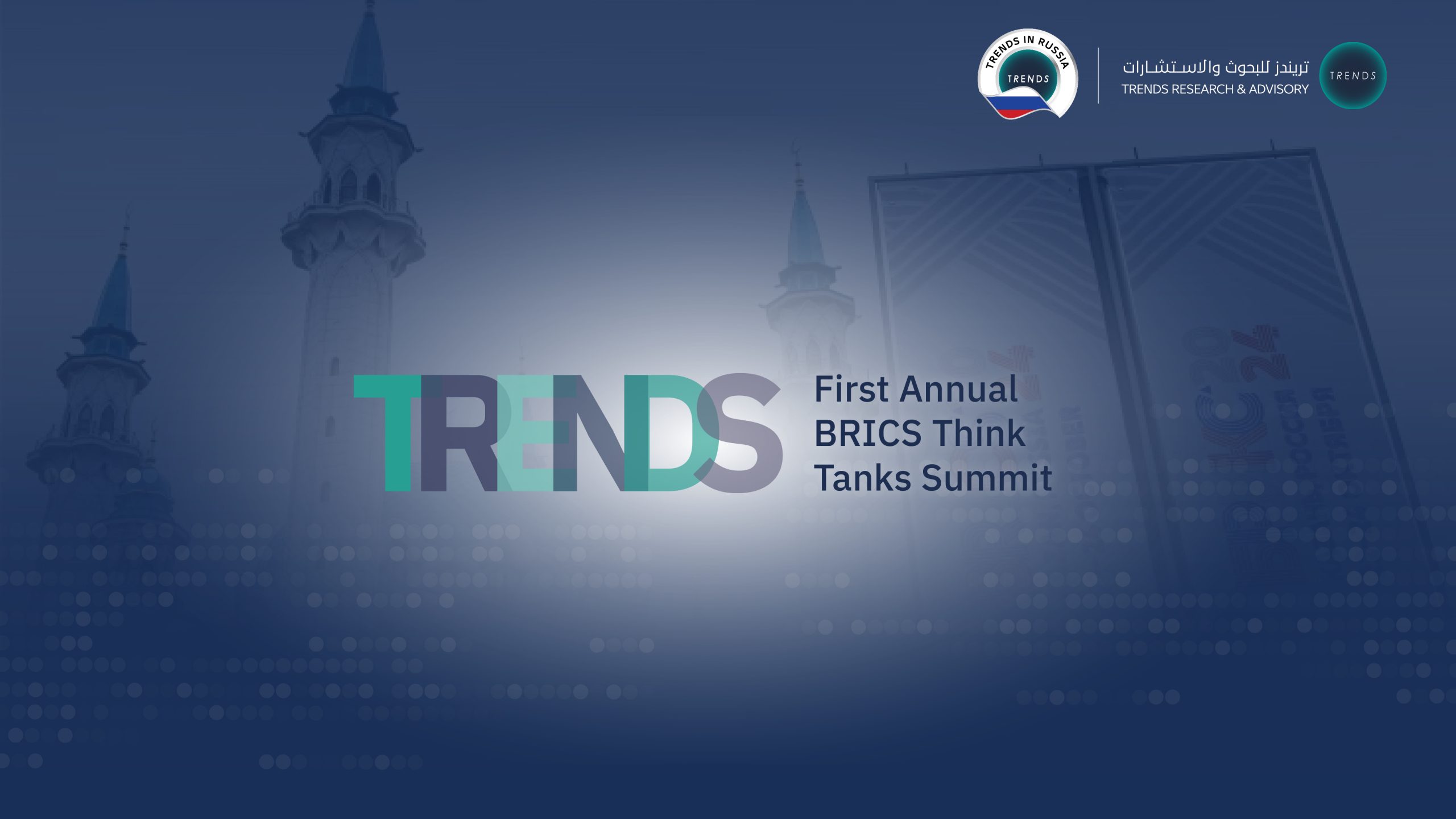
Rapid Global Transformations
Dr. Al-Ali noted that the summit seeks to foster deep and meaningful discussions among experts and researchers on the future of these institutions and think tanks amidst rapid global changes. The summit will explore their role in addressing contemporary issues such as the digital economy, climate change, integrated economies, and geopolitical challenges. It will also highlight the growing role of the media in disseminating knowledge and raising awareness about issues central to BRICS cooperation.
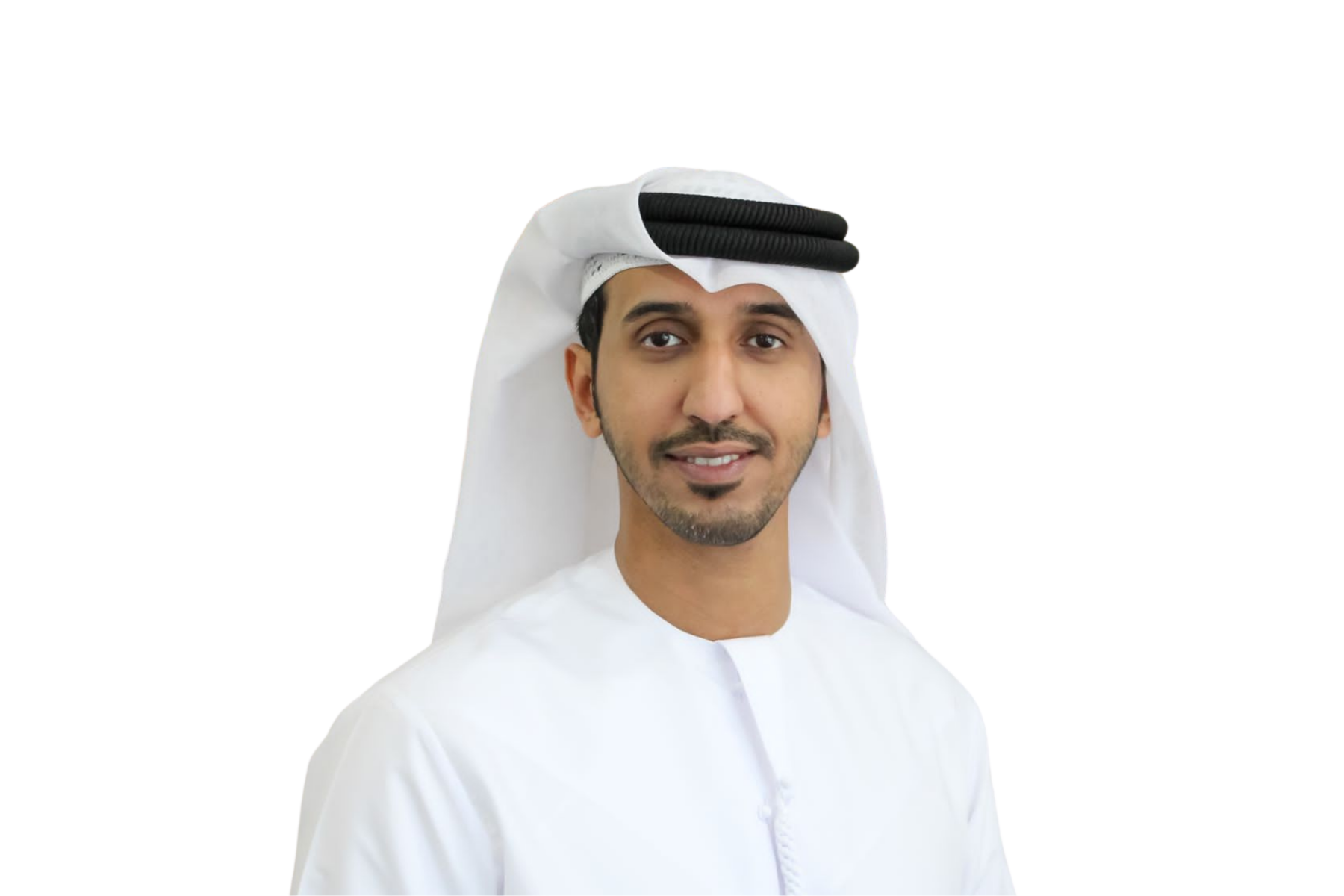
13 Research Institutions
Fahad Al-Mahri, Head of TRENDS Dubai Sector, emphasized that the TRENDS First BRICS Think Tanks Summit will see the participation of over 13 institutions and think tanks from BRICS countries. These entities will gather in two main sessions. The first session will focus on «The Role of Think Tanks in Developing Economic, Cultural, and Geopolitical Policies for BRICS Countries».
Al-Mahri explained that the first session will analyze mechanisms to enhance academic and intellectual cooperation among BRICS countries, with a focus on the role of think tanks in expanding dialogue on shared issues within the group by demonstrating how think tanks can contribute to economic growth strategies and commercial cooperation between BRICS countries.
The second session will discuss «The Role of Think Tanks and Media in Strengthening the Soft Power of BRICS Countries» and how think tanks can contribute to enhancing BRICS nations’ soft power in the cultural, educational and diplomatic fields. It will also explore how media can serve as an effective tool in conveying this soft power on the international stage.



